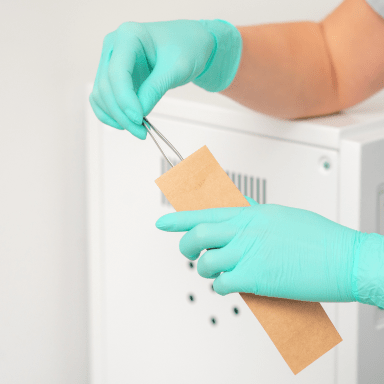NHS Pharmacy First Service: Accessible Healthcare for Common Conditions
The NHS Pharmacy First service is an innovative approach by the National Health Service to provide timely and accessible healthcare advice for a range of common conditions. Through consultations at your local pharmacy, you can receive professional advice without needing to visit a general practitioner immediately. This service is designed not only to help you manage your health efficiently but also to ease the pressure on other parts of the health service, ensuring that general practitioners remain available for more complex cases.
What Is the NHS Pharmacy First Service?
The Pharmacy First service offers a free consultation with a qualified pharmacist who can provide management and treatment for specific minor illnesses. Please note that while the consultation is free, any standard prescription charges may still apply if a prescription is required. The service is focused on seven common conditions, ensuring that you receive tailored care based on your symptoms and needs.
Conditions Covered by the Service
The NHS Pharmacy First service is specifically designed to handle the following conditions. Each condition has age-specific guidelines to ensure safety and effectiveness:
- Sore Throat – Available for individuals aged 5 and over. Pharmacists can assess your symptoms, provide advice on managing the condition, and determine if a referral is needed.
- Earache (Acute Otitis Media) – This service is offered for children and young people between the ages of 1 and 17. Pharmacists will evaluate the severity of the earache and recommend appropriate management.
- Sinusitis – Available for those aged 12 and over. Advice may include recommendations for symptom relief, over-the-counter treatments, and guidance on when to seek further medical advice.
- Infected Insect Bites – Managed for patients aged 1 and over. The pharmacist will check the bite, advise on infection prevention, and suggest ways to manage minor infections.
- Impetigo – Offered for individuals aged 1 and over. Pharmacists can identify the signs of impetigo, suggest treatment options, and provide important advice on preventing the spread of the infection.
- Shingles – Available for adults aged 18 and over. Pharmacists are trained to recognise early symptoms of shingles and can offer advice on managing pain and other symptoms until further treatment is arranged if necessary.
- Uncomplicated Urinary Tract Infections (UTIs) in Women – Specifically provided for women aged 16 to 64. The service offers initial assessment and guidance on managing symptoms safely. As UTIs can have complications if mismanaged, pharmacists carefully evaluate the situation and advise on whether a referral is necessary.
How the Service Works
When you visit your local pharmacy, the process is straightforward and designed to put you at the heart of the care process:
- Initial Consultation: A registered pharmacist will greet you and discuss your symptoms. They will ask pertinent questions to understand your condition and medical history.
- Assessment of Symptoms: The pharmacist will use their expertise to assess your symptoms accurately. This ensures that the condition is indeed appropriate for Pharmacy First management.
- Advice and Treatment: If your condition fits the criteria, the pharmacist can offer advice, recommend over-the-counter treatments, or—in some cases—provide medicines directly through the pharmacy service.
- Referral If Needed: If the condition is more severe or falls outside the scope of the Pharmacy First service, the pharmacist will advise you on the next steps, which may include referring you to your general practitioner or another health service.
Benefits of the NHS Pharmacy First Service
The benefits of using the NHS Pharmacy First service extend beyond simply receiving treatment for common health issues. Consider these key advantages:
- Rapid Access to Healthcare: With many pharmacies offering flexible hours, you can often get advice when you need it most, without lengthy waiting times.
- Convenience: Located in your community, pharmacies provide an accessible point of care, especially for minor illnesses that do not require a hospital visit.
- Expert Advice: Benefit from the knowledge and skills of qualified pharmacists who are trained in community health and can manage a range of common conditions.
- Reduces Pressure on GP Services: By addressing minor conditions at the pharmacy level, the service helps to free up GP appointments for more complex issues.
- Focused Care for Specific Conditions: The service ensures that treatment is specifically tailored to one of the seven conditions, so you receive care that is aligned with current NHS guidelines.
When to Use the Pharmacy First Service
It is important to recognize when your symptoms are appropriate for the NHS Pharmacy First service. Generally, this service is intended for cases that are not severe or life-threatening. You should consider using this service if:
- Your symptoms match those listed for the seven qualifying conditions.
- You are within the specified age range for the condition you are experiencing.
- You believe that your condition can be successfully managed with over-the-counter treatment or advice from a pharmacist.
If your condition is accompanied by additional symptoms or if you are unsure whether Pharmacy First is suitable, the pharmacist will help determine if further medical evaluation is necessary. For example, high fever, persistent pain, or worsening symptoms should prompt you to seek further advice from your GP or another appropriate service.
Patient Safety and Professional Guidance
Patient safety remains a priority at every step of the NHS Pharmacy First service. Pharmacists are fully trained to assess symptoms and provide appropriate advice. They follow strict protocols and guidelines to ensure that the treatment provided is both safe and effective. Here are some of the key safety practices followed during consultations:
- Comprehensive Symptom Assessment: Pharmacists will ask detailed questions about your symptoms, previous treatments, and any existing health conditions.
- Clear Guidance on Medication Use: If medicines are recommended, you will receive clear instructions on dosage, frequency, and potential side effects, ensuring you are informed about your treatment.
- Referral Procedures: If the pharmacist concludes that your condition requires additional medical attention, they will provide clear information on how to access further care services.
- Confidentiality and Professionalism: All consultations are conducted with a high degree of professionalism and confidentiality, ensuring your personal health information is respected at all times.
How to Access the Service
Accessing the NHS Pharmacy First service is simple. You do not need to make an appointment in most cases; simply visit your local pharmacy during their opening hours. The following tips may help you prepare for your visit:
- Know Your Symptoms: Write down your symptoms before you visit so that you can provide clear and concise information to the pharmacist.
- Check Age Guidelines: Make sure that you or your child falls within the appropriate age range for the condition in question.
- Bring Necessary Information: If you have recently taken any medications or have underlying health issues, be ready to share this information.
If you are unsure where your nearest participating pharmacy is located, you can use the NHS service search tool to find the most convenient option in your area.
Frequently Asked Questions
Is the consultation really free?
Yes, the consultation with the pharmacist is free. However, if you are prescribed medication during your visit, standard prescription charges may apply.
Can I use the service for conditions not listed?
The service is specifically designed for managing seven common conditions. If your symptoms do not match these criteria or if you have concerns that require a more detailed examination, the pharmacist will advise you to visit your GP or another appropriate healthcare service.
What if my child has an earache?
For children and teenagers aged 1 to 17, the Pharmacy First service can assess earaches (Acute Otitis Media). Pharmacists are experienced in managing ear infections and will provide guidance or referral based on the severity of the symptoms.
Can I access the service outside regular pharmacy hours?
Many local pharmacies offer extended opening hours. Check with your local pharmacy for their specific hours or visit the NHS website for further information.
Conclusion
The NHS Pharmacy First service is a valuable resource for managing minor but common health conditions. By offering free consultations with expert pharmacists, the service provides an accessible and convenient option for those in need of immediate advice. Whether you are dealing with a sore throat, earache, sinusitis, infected insect bites, impetigo, shingles, or a simple urinary tract infection, you can trust the guidance provided through this service.
This efficient model of care ensures that you receive the right advice at the right time, while also easing the burden on general practitioners. If you or a loved one experiences any of these conditions, do not hesitate to visit your local pharmacy for expert advice. The NHS Pharmacy First service is here to help you stay healthy and informed with professional, community-based care.
To learn more or to find a participating pharmacy near you, please click here to get started.
Your health matters, and with the NHS Pharmacy First service, help is always within reach. Embrace the convenience of accessible care in your local community and take the next step toward effective health management today.






